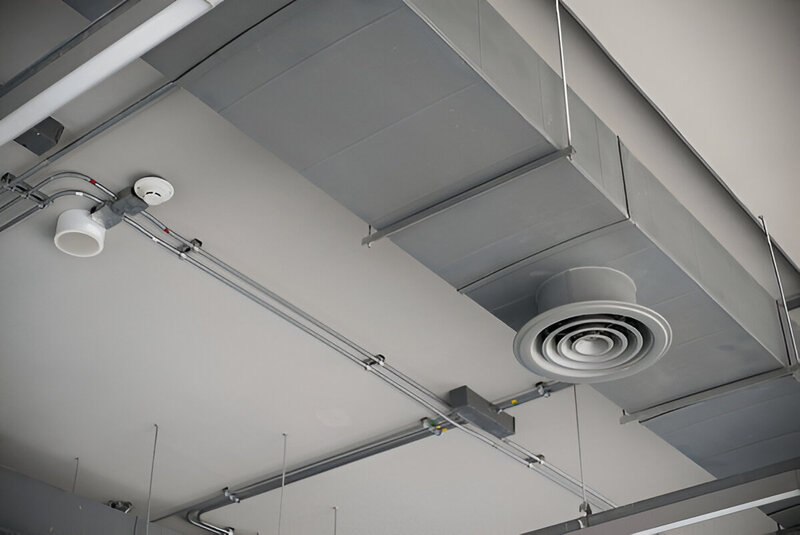
Engulfed in a cold winter night, imagine that you feel a chill surge through your spine as you return home from work. You stomp your boots, move around to warm up, but the chill stubbornly lingers. What’s missing? It’s the warmth and comfort of a properly functioning heating system. But what happens when your ducted gas heating system suddenly decides to misbehave? Such a predicament can leave anyone stressed, grappling with whether to attempt a repair themselves or hire professional help.
Ducted gas heating systems are marvels of modern technology, but they come with their complexities. Repairing these systems can sometimes feel overwhelming due to their intricate mechanics. Fear not, as this post unravels the benefits and challenges of ducted gas heating repairs Melbourne, offering insights into maintaining and repairing these indispensable systems effectively.
Unveiling the Necessity: Why Repairing Your Ducted Gas Heating?
Your ducted gas heating system is a silent guardian, working tirelessly to keep your home warm and cozy. However, neglecting its maintenance can lead to severe consequences, including unexpected breakdowns and safety hazards.
When a heating system operates without regular maintenance, its performance can diminish over time. Components may begin to strain, leading to increased power consumption and reduced efficiency. This raises energy costs in addition to affecting how comfortable your house is. Regular repairs and timely maintenance can:
- Prolong the system’s lifespan
- Enhance its performance
- Minimize power consumption
- Reduce the risk of costly repairs in the future
Timely ducted gas heating repairs are an investment in the long-term health of your heating system, ensuring safety and comfort for your family.
The Crucial Mechanics: What Is Involved in Ducted Gas Heating Repairs?
Repairing a ducted gas heating system is more than just fixing what’s broken—it involves a series of checks and adjustments to ensure optimal performance. Here’s what a typical repair process might include:
- Cleaning Components: Dust and debris can clog filters and ducts, reducing efficiency. Regular cleaning ensures smooth airflow.
- Checking for Gas Leaks: A critical safety measure, especially for systems relying on gas.
- Inspecting the Thermostat: Ensuring accurate temperature control for consistent heating.
- Adjusting the Fan Speed: For optimal heat distribution throughout your home.
- Examining the Burner: Ensuring efficient combustion and heat generation.
- Inspecting the Heat Exchanger: Looking for cracks or wear, which can pose safety risks.
These tasks require precision and expertise, making professional intervention essential for comprehensive servicing.
Timing It Right: When to Seek Professional Assistance?
You can save costly repairs or replacements by identifying early danger flags. Here’s what to watch for:
- Strange Noises: Unusual sounds like rattling, banging, or whistling could indicate a problem.
- Inconsistent Heating: Uneven warmth across rooms is a red flag.
- Spiked Energy Bills: A sudden increase in energy consumption often points to inefficiency.
- Failure to Start: If your system struggles to turn on or shuts off frequently, it’s time to call for professional help.
Addressing these issues promptly minimizes downtime and prevents further damage, keeping your home comfortable.
Frugal DIY vs. Professional Carers: Who to Choose for Repairs?
Some homeowners might think of doing their own repairs for little problems. Tasks like replacing air filters or cleaning vents can be manageable. However, the intricate nature of ducted gas heating systems means most repairs are best left to the experts.
Professionals bring:
- Experience: Years of expertise in handling various systems.
- Tools: Access to specialized equipment.
- Safety: Adherence to safety protocols to avoid hazards.
- Guarantees: Warranty-backed services for peace of mind.
While DIY repairs may save money upfront, the risk of causing more damage often outweighs the potential savings.
Weighing It Out: The Pros and Cons of Repairs
Regular maintenance and repairs come with distinct advantages, including:
Pros:
- Extended Lifespan: Well-maintained systems last longer.
- Improved Efficiency: Reduced energy bills and better performance.
- Reliability: Minimized risk of sudden breakdowns.
- Safety: Regular inspections prevent gas leaks and other hazards.
Cons:
- Cost: Repairs can be expensive, especially for older systems.
- Time: Scheduling and waiting for repairs may disrupt daily life.
- Finding Reliable Professionals: It can take time to locate trustworthy service providers.
Balancing these pros and cons helps you make informed decisions about your heating system.
Beyond the Basics: Additional Considerations
When considering repairs, look beyond the immediate needs. Evaluate:
- Environmental Impact: Inefficient systems consume more energy, increasing your carbon footprint.
- Future Costs: Investing in repairs today can prevent costly replacements tomorrow.
- System Upgrades: Consider modernizing your system for better efficiency and control.
Addressing these factors ensures you get the most out of your investment.
Conclusion: To Do or Not to Do – Ducted Gas Heating Repairs
Maintaining and repairing your ducted gas heating system is essential for a warm, safe, and efficient home. While DIY repairs might seem tempting, the complexity of these systems makes professional assistance the wiser choice.
Remember, maintenance isn’t just an expense—it’s an investment in your comfort and peace of mind. By addressing issues proactively and relying on skilled technicians, you can enjoy the warmth of a well-functioning heating system even on the coldest nights.
After all, there’s nothing quite like coming home to a cozy, inviting space during a frosty winter evening. So, don’t wait until the chill takes over—act now to keep your ducted gas heating system in top shape!Bottom of Form